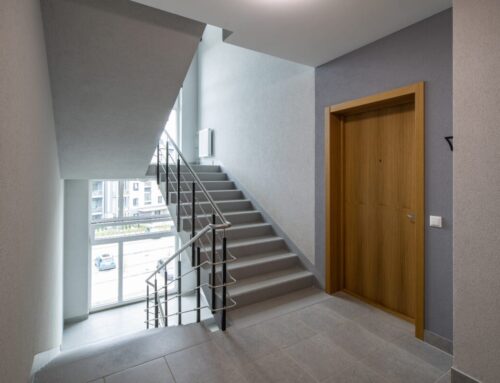 Landlord Insurance: why do you need it?
Landlord Insurance: why do you need it?
Landlord protection insurance is, without a doubt, imperative to keeping your property in a secure state. Property damage, whether accidental or malicious, can have a massively detrimental effect on your finances if you aren’t properly protected. That’s why it’s so important to have an insurance policy in place which protects you and your tenants from the unexpected, but without breaking the bank. Landlord insurance policies don’t only cover your building and its contents from damage; additional policies have been developed to keep your rental income safe too.
So, what types of landlord insurance policies are out there?
What is accidental damage?
No matter how careful you are (or how careful your tenants are), accidents can and do happen. Whether it’s a broken door or a serious leak, unexpected circumstances can often be highly expensive and a massive waste of your time.
Whilst you can’t stop all accidents from happening, you can do your best to prevent them or have a plan in place for when they do occur. Landlord protection insurance does just that – it protects you from damage caused by tenants (this is still your responsibility to rectify), as well as protecting from things which aren’t accidental, such as malicious damage and even rent disputes. You can also take steps to ensure the risk of damage is minimised, which is crucial to keeping your property running smoothly.
According to the Financial Ombudsman Service, accidental damage (regarding property insurance) is defined as:
- Unforeseen damage
- Unintentional damage
- Not only physical damage to an item, but also something that resulted in a loss of function (basically, if an item is unable to perform the task it was designed to do)
Examples of accidental damage can include a massive range of things, such as a burst water pipe, a smashed window, or a kitchen fire. As pointed out by Confused.com, the basic definition is usually an “unintentional, one-off incident”.
Whilst accidental damage insurance policies protect landlords against these types of events, it is always important for you to pay attention to what the policy covers before investing. After all, the last thing you want after an accidental incident is to find out your insurance doesn’t sufficiently covert the cost of repairs or replacements.
Deposit and Rent have created a Landlord’s Emergency Assistance policy which covers landlords in the event of an emergency. Should an insured incident take place, for example pest infestations, roof damage or plumbing issues, an authorised repairer will be sent to your property to carry out emergency repairs, thereby limiting the potential damage and repair costs. This policy covers you for the call-out fee, the labour costs and the cost of replacement parts, ensuring you are protected against any future mishaps.
What is malicious property damage?
Whilst accidental damage covers the bulk of incidents within a property, it is unfortunately the case that many landlords must deal with malicious damage as well. Malicious damage is the intentional or unlawful destruction or ruination of property, for example, purposefully breaking windows or vandalising the property. Whilst landlords are usually lucky enough to have reasonable tenants, malicious damage can often be caused by the tenants themselves. However, it is important to differentiate between intentional malicious damage and the general wear and tear that comes with letting out a property. In most cases, insurance policies do not offer protection for landlords against damage caused by standard wear and tear.
Examples of malicious damage can include:
- Graffiti anywhere on or in the property
- Broken windows, contents or broken parts of the building itself
- Arson
The process of claiming on malicious damage will require the property landlord to report the offence to the police, as it is necessary for you to prove that the damage was intentional, as well as requiring a Crime Reference Number from the police as verification.
Tenancy deposit protection and Rent Guarantee.
As well as protecting against accidental damage, malicious damage and tenancy disputes, landlord protection also comes in the form of tenancy deposit insurance. Many landlords rely on the income from their tenant’s rent, so to have this payment in jeopardy can be disastrous. That’s why certain deposit insurance policies have come into play, to protect landlords against the risks that come with obtaining their monthly rent payments.
Tenancy deposit insurance can be an invaluable addition to your insurance cover and gives you peace of mind that your income won’t be threatened by unreliable tenants. Deposit & Rent have created a range of tenancy deposit insurance policies to protect you against these issues, from missed rent payments to legal costs.
Deposit Replacement Insurance is a tenancy deposit scheme. It basically replaces the need for a tenancy deposit with an insurance policy (the cost of which falls on the tenant). This gives you more security and a lot more financial protection than a standard tenancy deposit and covers you against legal costs for up to £50,000.
In addition to this, the Rent Guarantee policy covers you against:
- Repossession
- Rent protection
- Rent recovery
- Alternative accommodation and storage costs
- Damage to your property, nuisance and trespass
- Defence of criminal prosecutions
- Contract disputes
- Tax enquiries
- Witness expenses
As a landlord, you have a great deal of responsibility, not only for your property but for your tenants and your income. It is your job to ensure that you have the adequate security in place before an incident occurs. If not, you may find yourself in a dire situation which could have otherwise been avoided.
For more information on anything discussed in this article, contact a member of the team on 0800 281 235.




Leave A Comment